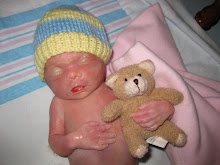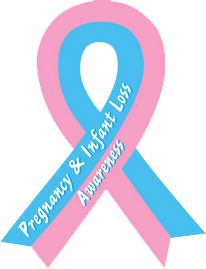I started this post a few days ago, but could not finish then. I sat, fumbling for words and feeling frustrated and angry. Very angry. Too angry to write. I'm in a different place now, so I'm sure this will end up being a different post than the one I would have written on Tuesday, but I'm going to pick up where I left off...
On Monday on our local classic rock station there was a top 50 countdown of Beatles tracks. Despite feeling particularly bereft and frustrated and anxious, in hopes of lifting my spirits, I kept radio tuned into the station as I drove to pick up flowers to bring to cemetery. While I think the song was written about homosexuality, the lyrics of "You've Got to Hide Your Love Away" resonated with how I have been feeling lately:
Here I stand head in hand
Turn my face to the wall
If she's gone I can't go on
Feelin' two-foot small
Everywhere people stare
Each and every day
I can see them laugh at me
And I hear them say
Hey you've got to hide your love away
Hey you've got to hide your love away
How could I even try
I can never win
Hearing them, seeing them
In the state I'm in
How could she say to me
Love will find a way
Gather round all you clowns
Let me hear you say
Hey you've got to hide your love away
Hey you've got to hide your love away
Hide my love away. Hide my grief away. Hiding my grief away is hiding my love away, for what is grief other than an extension of our love for those we have lost?
In our North American society, grief is socially unacceptable. When a loved one dies, not matter the relation, we are told to "be strong", "keep busy", "smile, she would want you to". It seems as though once a funeral has been held and the casket closed, society expects us to have closure on the passing of our loved ones and for grieving to end.
Its particularly shocking that here in Canada, where employment and human rights are (relatively) ably enforced, that the Employment Standards Act provides that an employee is entitled to only three days bereavement leave when an immediate family member dies, including a child.
Last September while honeymooning in Greece, Tim and I ferried from Athens to Santorini. There was a mix-up with our travel provider and rather than on a direct sail, we ended up on an island hopper. Enjoying the sunshine on the bow deck, we did not mind one bit. As we approached each port, we would stand at the deck rail, camera in hand, trying to take in as much as we could of each of the tiny islands we stopped at.
I believe it was in Naxos when a casket was unloaded. I heard the wailing before the ship was even docked. Twenty or so mourners, all adorned in their mourning clothes, stood waiting for the casket to be rolled out. The women sobbed loudly, and one woman, who I presume was the deceased's mother, wailed. She wailed with such fervor that the boat's engines did little to drown out her cries and pleas. She threw her arms in the air, let out noises I had never heard before, and allowed the others to catch her when her knees buckled.
Tim and I, and our fellow travelers, watched from the boat as a priest splashed the casket with Holey water, and then as the men picked up the casket and the mourners all paraded away together, carrying their dead, praying, sobbing, dressed in their mourning clothes.
How sad I thought, and then how dramatic?! I asked Tim if he thought the emotion was real or whether it was forced, like some sort of show. I wondered if the mother felt obliged to carry on that way, and whether if in Greek society, the bereaved would be judged if they did not make such a production out of the death of a loved one.
I do not wonder such things anymore. I now understand that those noises were primal screams, and on tiny Greek Islands, it is okay to let them out. The mourning clothes are like the "My Baby Died" t-shirt I wish I could wear so people would understand my tear stained cheeks, puffy eyes, short temper and inability to make social niceties. Now I wonder, how long it is socially acceptable to wear mourning clothes in Greece?
Here in North America, we are given a few minutes or so to scream and wail when the news is delivered, a few days or so to cry openly, and, at best, a few weeks or so to finish up the business of feeling sad and to get on with our lives. After ten weeks, my grief has already outlasted others tolerance of it.
I've posted before about the lack of support Tim and I have received from our friends and family members. Knowing I have real world readers, I have been hesitant to get into much detail for fear of offending anyone. It is not that I actually care if any of my real world readers are offended, because quite frankly, this is not about them right now, but I am loath to create any conflict or drama that will just make the situation worse for Tim and I. But...at this point I do not know if it can get any worse, and this is my space for sharing and growing and healing, so here goes...
A certain family member, lets call her M, has been relentless in her pursuit to force us to "get over" Isla. She has been not so subtly suggesting we should be "back to normal" for at least six weeks now. She made it clear to both Tim and I that after four weeks, her expectation was that we should be back to work full-time. When she learned that Tim was gradually returning to full-time hours, she advised me that she had decided that an appointment would be scheduled for Tim and I with the family doctor to get anti-depressants because it was, "enough now".
In the initial days following Isla's death, Tim and I made a conscious decision to face our grief head on in order to heal, and that we would not deny ourselves the opportunity to mourn the loss of our daughter because we understood that grief could not be avoided, and suppressing our emotions would only delay inevitably feeling them. We also decided we needed to balance grieving and living. And, truthfully, I think we have been doing a really good job.
When M began suggesting it was time that we started to feel better just a little over a week after Isla's death, Tim and I tried to explain to her that grieving was healthy and necessary and that without grieving, we risked long-term emotional health problems. We also tried repeatedly to explain how profound this loss is to us, despite the fact that Isla was not born alive and we did not have an opportunity to bond with her outside of my body. She did not get it. So we tried again. And again. And again. And again, to no avail.
With each passing week M has become more insistent that we should no longer be grieving and more forceful in her attempts to make us feel and behave the way she wants us to. It has escalated to the point where, on Sunday night, she advised Tim that he required psychiatric help because he should no longer be feeling sad and that Isla was "just a late miscarriage" and we should be over it by now (wrong on so many levels, I know).
At first I tried to be patient and to rationalize that her instinct is to fix things for us, to take away our pain. I'm sure that is a big factor in what is happening here. But, I've decided it is more than just that. She is the ultimate by-product of our grief denying North American society - emotionally stinted as a result of her own unresolved grief and seeking to perpetrate the same denial of grief that has been imposed on her.
We do not talk about death, and particularly baby death, and more particularly stillbirth, so there is little reference for what a "normal" length and pattern of grieving is. We deny the bereaved the opportunity to express the emotions associated with grief. We encourage grief avoidance patterns by rewarding the bereaved for "being strong". And, perhaps most concerning, we label those who still have the ability to express their grief despite these social pressures, as being "overly emotional" or "crazy".
M genuinely believes that ten short weeks after the death of our daughter, Tim and I are suffering from some sort of pathological mental health problem, because we are not "over it" and "back to normal" yet. I have discovered that no matter how often I try to explain to her that our grief, and the feelings associated with it, are normal and to be expected, and that regardless of Isla's gestation, Tim and I are grieving the loss of a child, our child, a real baby, she just cannot get it.
So, alas, I have given up; thrown in the towel (or in this case the tear soaked, snotty Kleenex), and built a thicker emotional wall between myself and M.
I'm not angry anymore. Disappointed maybe, but not angry. Her own social conditioning has left her struggling so much with her own repressed grief from other losses and the loss of Isla, that she is incapable of feeling her own emotions, let alone understanding ours. And you what? While she may not be offering Tim and I the support we so desperately need, she is teaching us a lot about grief and its important healing value.
And this has me thinking about the need for this space, lost baby momma blogland. This is our own little society where our grief, and all the emotions associated with it, are socially acceptable and support is unconditional. While I am so grateful for this space, I am also saddened that it is necessary. What does it say about our society, and our friendships and our families, when we, bereaved parents, must conceal our grief in the real world and turn to people whom we have never met for the unconditional support we so desperately need.
Hide your grief away. The message is everywhere. It is in the lack of cards and phone calls from people who really should acknowledge the death of your baby. Its in the the phone calls and visits that stop after a couple of weeks. Its in the gentle and not so gentle prodding for us to "get back to normal".
Hide your grief away, to me, feels a lot like hide your LOVE away, and, as a mother, I find this impossible. I think this is where so much of my frustration and anger has been coming from. I'm back to the early days of wanting to stand on the front lawn in my pajamas screaming, "ISLA MICHAELA JOHNSTON, ISLA MICHAELA JOHNSTON, ISLA MICHAELA JOHNSTON". Now I won't of course, because well, not only would that likely land me in the psychiatric ward of the local hospital, I would embarrass myself. Such behaviour is socially unacceptable here in North America (well perhaps wearing your pjs on the front lawn screaming is socially unacceptable everywhere).
But, what if it were just okay for me to grieve? To talk about the death of my baby? To stop pretending I am okay and she never existed? To dawn mourning clothes and cry in public? Would I still feel the need to shout her name? Maybe. But at least then it would be easier to do so, right?
And, maybe then, if grieving were socially acceptable, my family and friends would stop talking about how I need to hide my grief away, so they could listen and actually hear me saying her name. And, maybe then, if more people in my real world were listening and hearing her name, I would not feel the need to scream her name at all. And maybe then, my love for her would be validated and I could get on with the business of healing from the pain her death has caused.
Until then (and since I the neighbours are outside right now and my pjs do not even match, making my trip to the psychiatric ward all the more shameful, and well, I am Canadian after all, and you know how polite we are) I guess I will just have to keep screaming her name and professing my love for her here.
ISLA MICHAELA JOHNSTON!!!!!
It is a beautiful name isn't it? Just in case some of you do not know how to pronounce it, it is Eye-lah, like the actress Isla Fischer, not Iz-la.
And, I LOVE her, so very, very, very much.





